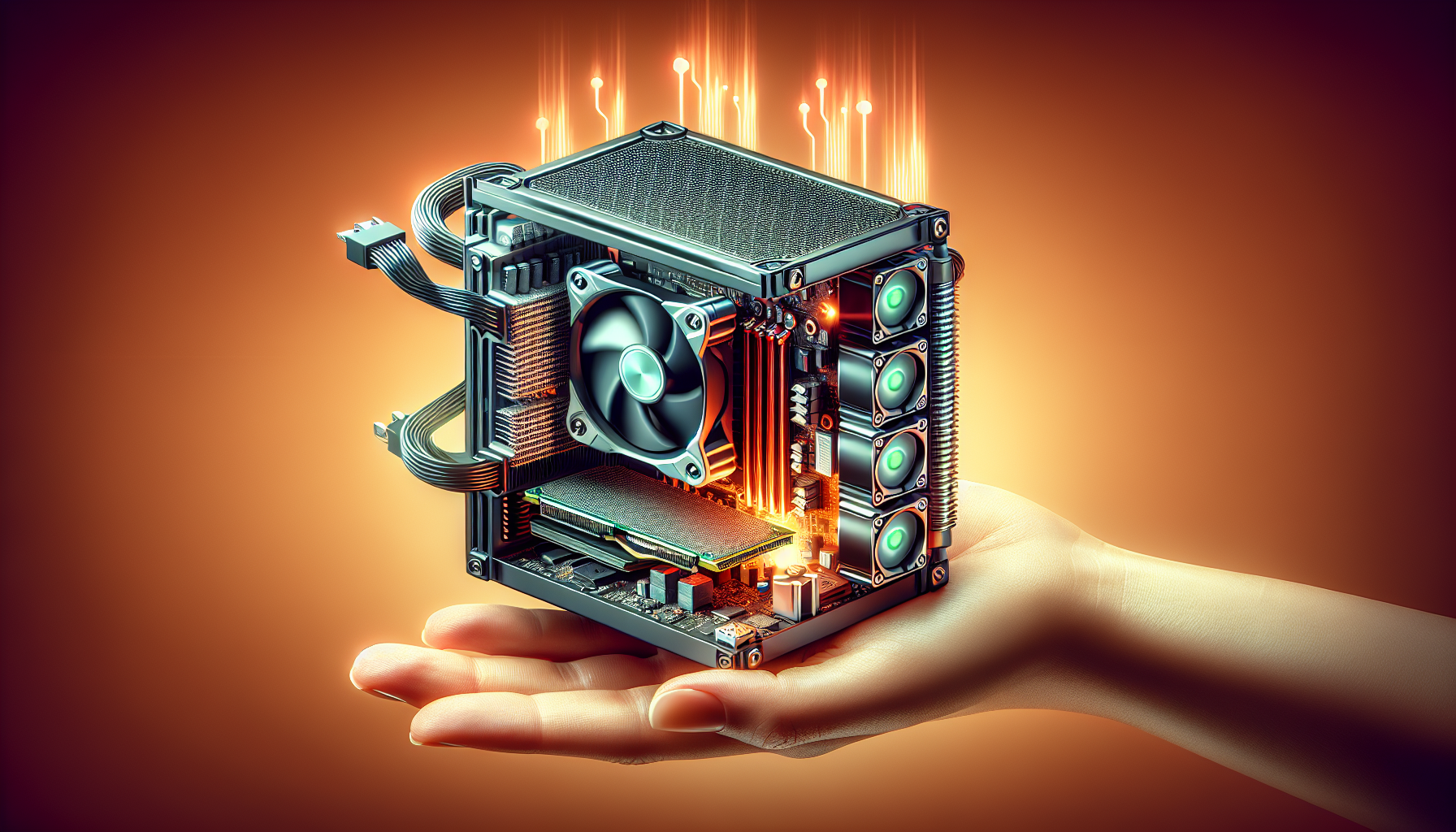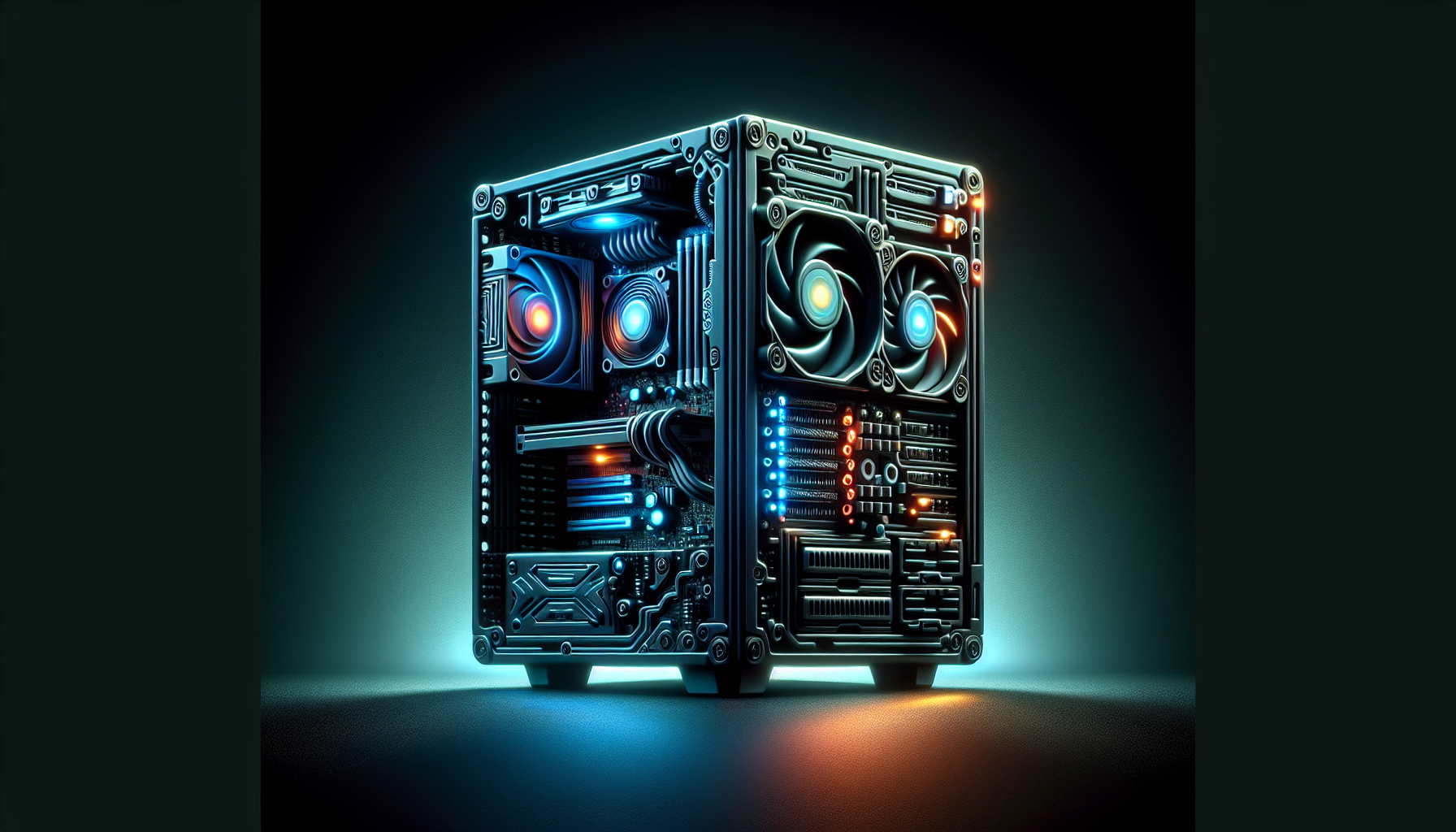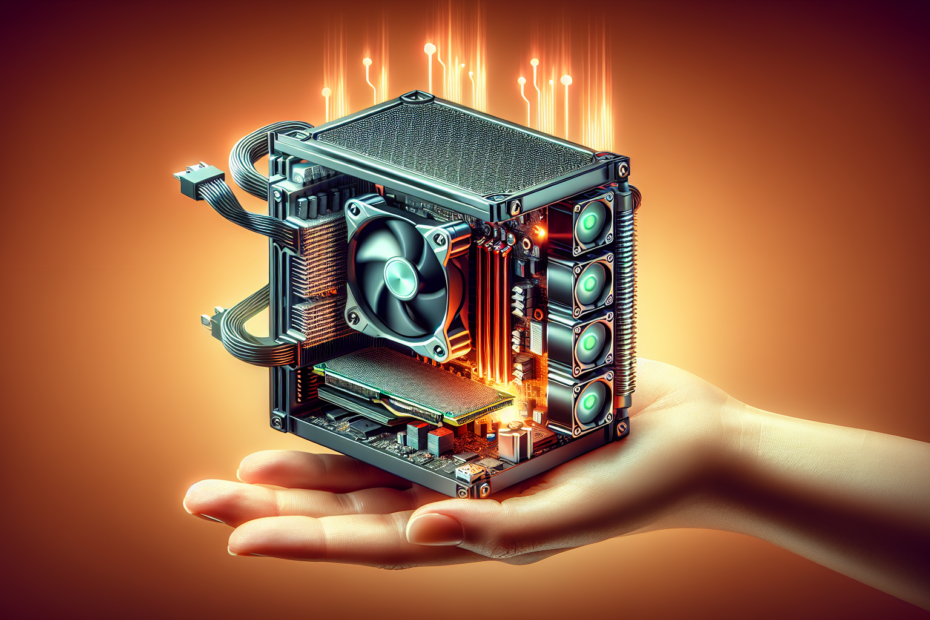



Are you a gaming enthusiast who is considering investing in a mini gaming PC? If so, you might be wondering if these compact powerhouses are prone to overheating. In this article, we will explore the topic of mini gaming PCs and their tendency to overheat, addressing any concerns you may have before making your next gaming rig purchase. So, let’s dive into the world of mini gaming PCs and find out if overheating is a real issue or just a misconception.
Factors affecting heating in mini gaming PCs
When it comes to mini gaming PCs, there are several factors that can contribute to overheating issues. These factors include the size and design of the PC, its processing power and graphics capability, component placement and ventilation, the cooling system and fans, as well as overclocking and performance optimization. Understanding these factors is crucial in order to effectively manage and prevent overheating in mini gaming PCs.
Size and design of mini gaming PCs
One of the primary factors that affect heating in mini gaming PCs is their compact form factor. Mini gaming PCs are designed to be smaller and more portable, which means that they have limited internal space. This limited space poses challenges when it comes to heat dissipation and can result in higher temperatures inside the PC. The compact design also has implications on thermals, as it can restrict airflow and inhibit proper ventilation.

Processing power and graphics capability
Mini gaming PCs often boast impressive processing power and graphics capability, which is essential for running demanding games and applications. However, this increased power also comes with a downside – higher heat generation. The more powerful the CPU and GPU, the more heat they generate during operation. This presents thermal management challenges, as the PC must find effective ways to dissipate the heat and prevent overheating. The increased heat output can also have a direct impact on gaming performance, as excessive heat can lead to throttling and decreased overall system performance.
Component placement and ventilation
The placement of components within a mini gaming PC can greatly affect its thermal performance. Improper placement of heat-generating components, such as the CPU and GPU, can lead to concentrated heat pockets and restricted airflow. Additionally, inadequate airflow design can hinder the flow of cool air into the PC, while a lack of sufficient ventilation can prevent hot air from being expelled. Both of these factors can negatively impact temperature regulation and contribute to overheating issues.

Cooling system and fans
The cooling system and fans in a mini gaming PC play a crucial role in regulating temperature and preventing overheating. There are different types of cooling systems used in mini gaming PCs, including air cooling and liquid cooling. The effectiveness of the stock cooling solutions provided with the PC can vary, with some being more efficient at dissipating heat than others. In some cases, using aftermarket cooling options can be advantageous, as they can provide better cooling performance and lower temperatures. It’s also important to regularly maintain and clean the fans in the PC to ensure they are functioning optimally.
Overclocking and performance optimization
Overclocking is a technique used to increase the performance of a PC’s CPU and GPU beyond their default settings. While overclocking can yield significant performance improvements, it also comes with increased heat output and power consumption. This means that overclocking can put additional strain on the cooling system and potentially lead to overheating. Proper cooling techniques, such as using aftermarket cooling options and optimizing fan speeds, are crucial when overclocking a mini gaming PC to keep temperatures in check and prevent heat-related issues.
Signs and symptoms of overheating
It’s important to be aware of the signs and symptoms of overheating in a mini gaming PC, as they can indicate potential issues that need to be addressed. Some common signs of overheating include frequent system crashes or reboots, reduced gaming performance, unusual fan noise, abnormal heating sensation when touching the PC case, and even system shutdowns due to excessive heat. Monitoring these signs can help identify potential overheating problems and allow for timely intervention to prevent further damage.
Preventive measures against overheating
Fortunately, there are several preventive measures that can be taken to mitigate the risk of overheating in a mini gaming PC. Regular cleaning and dust removal are essential to ensure that airflow is not impeded by accumulated dust and debris. Proper cable management can also help improve airflow and prevent cables from obstructing ventilation paths. Choosing a well-ventilated PC case with sufficient airflow options is another important consideration. Optimizing the placement of components within the PC can allow for better heat dissipation, and applying thermal paste correctly can improve thermal conductivity. Additionally, undervolting and power management techniques can help reduce heat generation and improve thermal control.
Additional cooling solutions
In some cases, additional cooling solutions may be necessary to address overheating issues in a mini gaming PC. Installing additional case fans can help improve airflow and enhance heat dissipation. Liquid cooling options provide an alternative cooling solution that can be more effective at dissipating heat, especially in compact systems where space may be limited. Purchasing aftermarket cooling accessories, such as CPU coolers and GPU coolers, can also provide more efficient cooling compared to stock options. Finally, using cooling pads or stands can help elevate the PC and improve airflow around the components.
Troubleshooting and fixing overheating issues
If overheating issues persist despite preventive measures, troubleshooting and fixing the root causes becomes essential. Checking and upgrading the cooling system, such as replacing stock fans with more efficient ones or installing additional cooling solutions, can greatly improve thermal performance. Monitoring and managing CPU and GPU temperatures through software can help identify excessive heat sources and adjust cooling strategies accordingly. Fixing inadequate airflow problems, such as repositioning cables or adding more ventilation openings, can also alleviate overheating. In some cases, considering component upgrades, such as replacing outdated or inefficient components with newer ones, may be necessary. Seeking professional assistance from knowledgeable technicians can provide expert guidance and solutions to more complex overheating problems.
In conclusion, mini gaming PCs can be prone to overheating due to various factors, including their size and design, processing power and graphics capability, component placement and ventilation, cooling systems, and even overclocking. Understanding these factors and implementing preventive measures, such as proper cleaning, cable management, and optimizing component placement, can go a long way in maintaining optimal temperatures. Additional cooling solutions, troubleshooting, and seeking professional assistance are also viable options to address persistent overheating issues. By being proactive in managing heat generation and ensuring efficient heat dissipation, you can enjoy uninterrupted gaming sessions on your mini gaming PC without the worry of overheating.
Disclosure: As an Amazon Associate, I earn from qualifying purchases.



